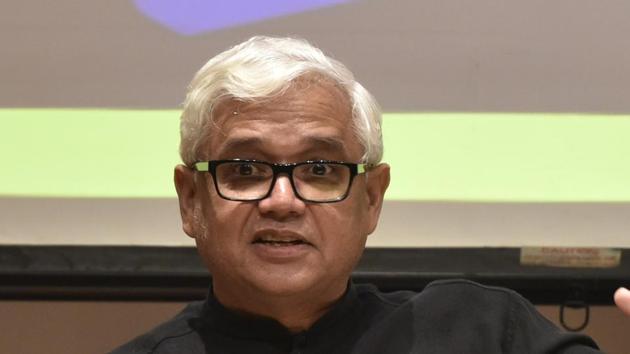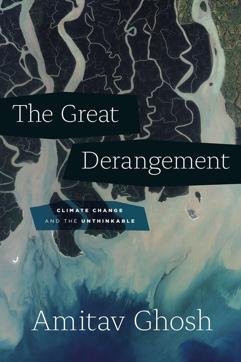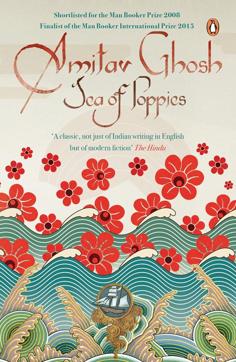Thinking about climate change is like thinking about death: Amitav Ghosh
The Sahitya Akademi award-winning author, Amitav Ghosh talks about Mumbai and his latest book The Great Derangement: Climate Change and the Unthinkable.
After grabbing our attention with award-winning books such as The Hungry Tide, The Glass Palace and Sea of Poppies, Amitav Ghosh’s latest book, The Great Derangement: Climate Change and the Unthinkable, has been creating a stir in the literary world. In an interview with HT Café, the author talks about climate change, its effect on Mumbai and the possible solutions.

Do you think you could have written a book like The Great Derangement 10 years ago, or has the current urgency around the issue inspired you?
The urgency played a large part, and you should not underestimate climate change. Even 10-15 years ago, we could say that this was going to happen later, but climate change is happening right now. In fact, it’s accelerating. We are really in an emergency; we just don’t realise it. James Hansen was one of the first scientists to take an interest in climate change. He started working on it, because he had been working on Venus and its atmosphere. Venus was habitable like the Earth, but then it went through a catastrophic climate change. The reality is that we don’t know what we are dealing with.
You focus on South Mumbai in certain parts of the book. What is your connection with the city?
I’ve always loved visiting Mumbai, and I almost went to college here. I was choosing between St Xavier’s in Mumbai and St Stephen’s in Delhi for my undergraduate studies. I sometimes think about how different my life would have been had I opted for that [St Xavier’s]. I have great affection for the city. So, when I saw what Hurricane Sandy had done to New York, I discovered that the cyclonic activity in the Arabian Sea is also increasing. It’s possible that there will be a cyclone strike on Mumbai soon and the city is completely unprepared.

What do you think makes Mumbai vulnerable?
One of the real issues here is the city’s success. A very large part of the Indian economy is in the city. Almost 40% of [India’s] exports go through Mumbai. The Stock Exchange, the RBI, they’re all in Mumbai, and they are located in low lying areas. A cyclone has powerful winds, but it’s not the winds that cause damage. The major destruction is caused by a ‘storm surge’ — as a cyclone comes up, it may whip up a giant wave, like a tsunami, which leads to destruction. These days, the Gateway of India is flooded during high tides, which never used to happen earlier. Floods are already commonplace now. Let’s say a 15-foot wall of water comes from the western side of the city — the embankment on Marine Drive won’t even interrupt it. It’ll just flow straight over. We are looking at a situation where the stock exchange and the RBI will be put out of commission for several days. What would be its impact on India’s economy?

Do you think these problems can be addressed?
I don’t think these problems are insoluble. Mumbai is fortunate to have Navi Mumbai, which isn’t as vulnerable as the southern part of the city. South Mumbai, where all the major institutions are concentrated, has become the dominant part, because of the history associated with it. There’s nothing to be done about that except to prepare an alternate plan. In modern times, one has to consider the risks. Companies that invest in the stock market consider the risk, and these issues are much more threatening than any risk in the stock market.
How difficult is it to create a dialogue around the issue?
It’s hard to see a solution. All of us know how to write about elections; we know how to write about political demonstrations, but how do you write about a heat wave? Yet, the heat wave that swept North India this year was catastrophic. Climate change poses a major challenge to writers, journalists and to everybody else. People are not informed enough, and I sympathise with them. Thinking about climate change is like thinking about death. Nobody wants to think about it, but it does exist.

Are there any climate movements that you’re following in Asia?
There are many grassroots movements, but they are still not big enough to make a major impact. Even mentioning climate has become problematic in several parts of Asia. I’ve just come back from Indonesia, and I was told that Leonardo DiCaprio was there recently. He takes a lot of interest in climate issues. He had been to Kalimantan (Indonesia), where he tweeted about how forests are being cut down for palm oil plantations. Immediately, the government made him leave the country. These issues are becoming harder to bring up.
Even though your books are critically acclaimed, Amish Tripathi receives more fanfare. Does that bother you?
Amish is a good friend and I like what he does. Amish’s books are about mythology, so in a way, they look at older times than mine do. It’s a curious paradox, but I think, of course, people of a younger generation have other interests and they should read all kinds of things. Sometimes they read Amish and sometimes they read me.
Tell us about your writing schedule?
I go to work in the morning, take a break for lunch and work again untill the evening. I’m not a morning person at all. I consider myself lucky if I get down to work by 10.30am. Also, I write my first drafts in longhand. Writing is cumbersome; there’s no easy way around it. It lets you reflect on your sentences. It’s when you’re writing that your thoughts flow, whereas if you’re just typing, it becomes a mechanical activity.
This is the season for literary festivals in the country. What is your opinion of them?
As a writer, I have to say the main issue is to safeguard my own time. The city literary festivals are the tip of the iceberg. Every institution seems to have some festival for which they send me invitations. Any writer who would be going to all of these will have no time left to write.
Catch your daily dose of Fashion, Taylor Swift, Health, Festivals, Travel, Relationship, Recipe and all the other Latest Lifestyle News on Hindustan Times Website and APPs.




